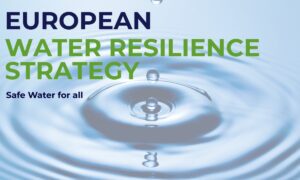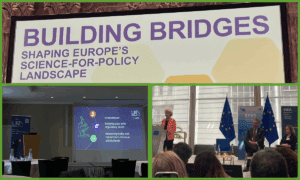From the EU side, President of the European Commission, Ursula von der Leyen, President of the European Council, Charles Michel and Foreign Affairs representative Joseph Borrell attended the meeting hosted by United States President Joe Biden and Secretary of State Anthony Blinken.
According the press release, areas, ranging from geopolitics and contemporary conflicts to economic issues and international partnerships were covered. However, science-policy related topics were not missing from the agenda either: primarily, sustainability, the green transition, and emerging technologies and their scientific uses were discussed. The parties reinforced their commitments to the green transition, highlighting the importance of methane reduction, circular economy, and the availability of critical raw materials (CRM). The Inflation Reduction Act, which stirred a controversy earlier this year was also on the table: progress was made towards an agreement which would allow CRM extracted or processed in the EU to count toward clean vehicle requirements. The release’s section on the expansion of technology exchanges primarily concerns cooperation regards to Artificial Intelligence as an emerging technology, however, it does focus on a joint commitment on AI’s uses in wider areas of scientific research, such as agriculture, extreme weather, medicine and health. Finally, transatlantic academic relationships were also covered. The European Union pledged to boost Erasmus+ funding as well as to support Fulbright-Schuman programme – the increased support of which was also confirmed by the US. This is expected to result in a higher number of academic exchanges across the Atlantic.
Transatlantic cooperation on the field of sciences is no stranger for the European chemical community either. Earlier this year, the European Chemical Society signed a Memorandum of Understanding with the American Chemical Society.



